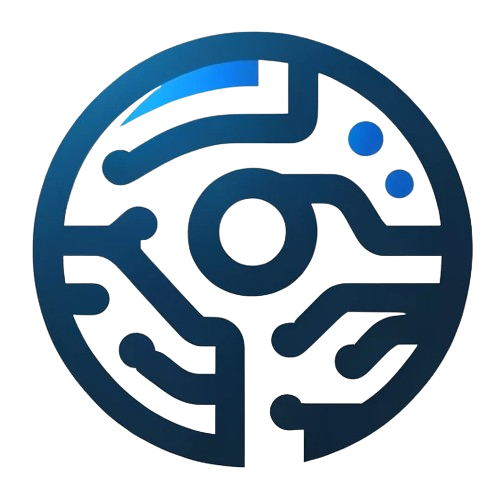Introduction: The Blockchain Revolution
Imagine a world where trust is no longer vested in central authorities but distributed across a network of computers. This is the promise of blockchain technology. In this blog, we’ll embark on a journey through the realm of blockchain development, exploring its fundamentals, applications, and the bright future it holds for businesses of all kinds.
Understanding Blockchain: The Basics
At its core, a blockchain is a distributed ledger that records transactions across a network of computers in a secure, tamper-resistant way. Here’s what you need to know:
1. Decentralization: Instead of relying on a central authority like a bank or government, blockchains are maintained by a decentralized network of nodes (computers).
2. Cryptography: Transactions on the blockchain are secured using cryptographic techniques, making it extremely difficult to alter or forge data.
3. Transparency: Every transaction is recorded on a public ledger, visible to all participants in the network. This transparency builds trust.
4. Immutability: Once data is recorded on the blockchain, it cannot be altered, creating a permanent and auditable history.
Blockchain Beyond Bitcoin: Diverse Use Cases
While Bitcoin is the most famous blockchain application, the technology’s potential extends far beyond digital currency. Here are some diverse use cases:
1. Supply Chain Management: Blockchain can track the journey of products from manufacturer to consumer, ensuring authenticity and traceability.
2. Healthcare: Patient records can be securely stored and shared, reducing data breaches and ensuring privacy.
3. Finance: Smart contracts automate financial transactions, reducing the need for intermediaries and minimizing fraud.
Real Estate: Property records can be stored on a blockchain, simplifying property transactions and reducing fraud.
Voting Systems: Blockchain can enhance the security and transparency of voting systems.
Blockchain Development: The Key Components
To dive into blockchain development, you need to understand its key components:
1. Cryptography: Learn about cryptographic algorithms used for securing data on the blockchain.
2. Consensus Mechanisms: Understand how nodes in the network agree on the validity of transactions. Common mechanisms include Proof of Work (PoW) and Proof of Stake (PoS).
3. Smart Contracts: These self-executing contracts with the terms of the agreement directly written into code are a cornerstone of blockchain development.
4. Tokens and Cryptocurrencies: Explore how tokens and cryptocurrencies are created and managed on blockchains.
Blockchain Platforms: Building the Future
Several blockchain platforms make it easier to develop decentralized applications. Here are a few notable ones:
1. Ethereum: Known for its smart contract capabilities, Ethereum is a popular choice for decentralized app (DApp) development.
2. Binance Smart Chain: Offering compatibility with Ethereum, Binance Smart Chain provides fast and low-cost transactions.
3. Hyperledger Fabric: An enterprise-grade blockchain platform, Hyperledger Fabric is suitable for building private, permissioned networks.
4. Polkadot: Focused on interoperability, Polkadot allows different blockchains to connect and share information.
The Business Case for Blockchain: Who Should Care?
Blockchain technology has something to offer to a wide range of businesses:
1. Financial Services: Banks, payment processors, and fintech companies can streamline operations, reduce fraud, and enhance security with blockchain.
2. Supply Chain: Companies involved in manufacturing, logistics, and retail can use blockchain to improve transparency and traceability.
Healthcare: Hospitals, insurance providers, and pharmaceutical companies can securely share patient data while ensuring privacy.
Real Estate: Real estate agencies, title companies, and property developers can streamline property transactions and reduce fraud.
Tech Startups: Innovative startups can build DApps and new business models on blockchain platforms.
The Future of Blockchain: Skyrocketing Growth
The future of blockchain development is incredibly promising:
1. Rapid Adoption: Businesses across industries are increasingly exploring blockchain solutions to enhance security, transparency, and efficiency.
2. DeFi and NFTs: Decentralized Finance (DeFi) and Non-Fungible Tokens (NFTs) are booming sectors within blockchain, opening up new financial possibilities and digital asset ownership.
Interoperability: Projects like Polkadot and Cosmos are working on blockchain interoperability, allowing different networks to seamlessly communicate.
Regulatory Clarity: As regulations become clearer, more institutions will feel comfortable investing in and adopting blockchain technology.
Mainstream Integration: Blockchain will continue to integrate into everyday life, from digital identity solutions to the Internet of Things (IoT).
Conclusion: Building a Decentralized Tomorrow
Blockchain development is not just a technological evolution; it’s a paradigm shift in how we perceive trust and decentralization. As businesses and industries increasingly recognize its potential, blockchain will continue to disrupt and transform various sectors. Embracing blockchain today means being part of a more transparent, secure, and decentralized future, where trust is a network rather than an institution. So, whether you’re a developer, entrepreneur, or business leader, the world of blockchain development awaits your innovation and expertise.

